Meet the Team
Explore
×Meet our Leadership team
.png)
Claire Ponsford
Co-Owner & Director, Wavelength Group
.png)
Dr John Bethell
Co-Owner & Director, Wavelength Group

Paul Darby
General Manager, Hospital Services Locum
.png)
Jon Wallace
National Client Relationship Manager, Wavelength Group

Craig Picard
Hospital Specialist Locum Manager

Max Drakeley
GP Locum Team Manager
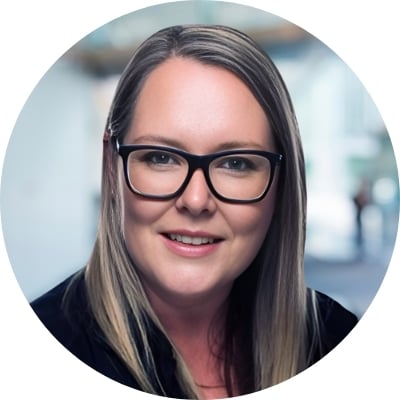
Skye Rogers
Locum Manager - Critical Care
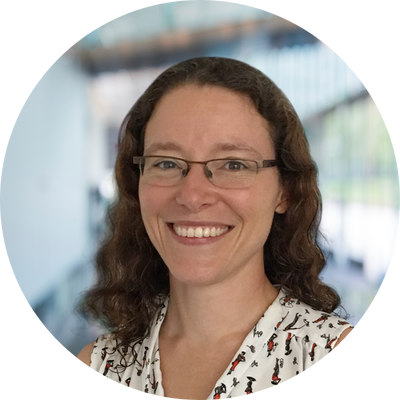
Elinor Faulkner
Team Leader, Regulatory & Migration Services

Helen Spanos
Quality, Risk & Compliance Manager

Melissa Welsh
Recruitment Operations Manager
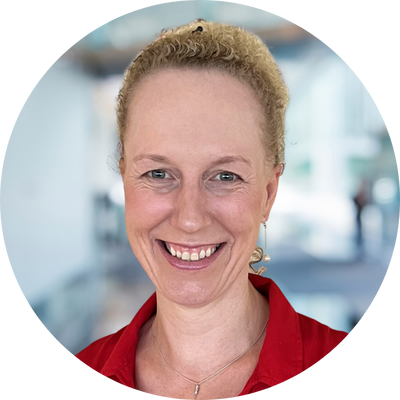
Carole Paterson
Partnership & Contracts Manager
Meet our Anaesthetics & ICU team
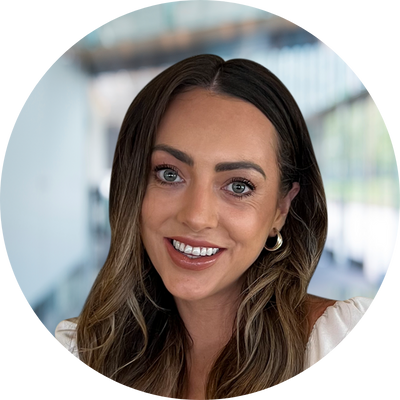
Fiona Jackson
Recruitment Consultant Locum ED, ICU & Anaesthetics
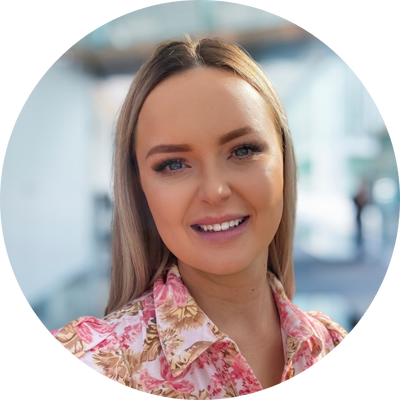
Mikaila Brooks
Recruitment Consultant Locum ED, ICU & Anaesthetics

Jade Camilleri
Recruitment Consultant Locum Anaesthetics & ICU
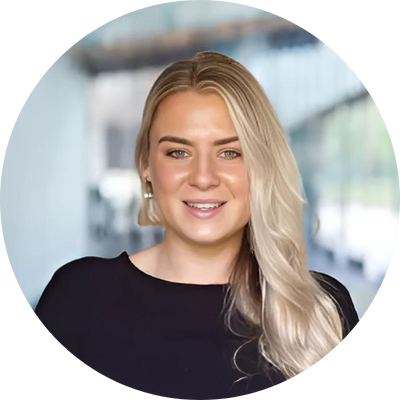
Tabather Cain
Recruitment Consultant Locum Anaesthetics & ICU
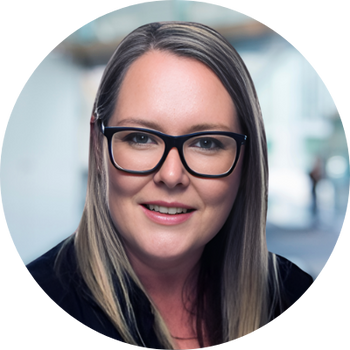
Skye Rogers
Recruitment Consultant Locum ED, ICU & Anaesthetics

Ashlea Harvey
Recruitment Consultant – Permanent Emergency Medicine, Anaesthetics, ICU, General Medicine, O&G, Fertility and Paediatrics
.png)
Claire Waters
Senior Recruitment Consultant – Permanent (Non-Specialists)
Meet our Emergency Medicine team

Fiona Jackson
Recruitment Consultant Locum ED, ICU & Anaesthetics

Mikaila Brooks
Recruitment Consultant Locum ED, ICU & Anaesthetics

Skye Rogers
Recruitment Consultant Locum ED, ICU & Anaesthetics

Ashlea Harvey
Recruitment Consultant – Permanent Emergency Medicine, Anaesthetics, ICU, General Medicine, O&G, Fertility and Paediatrics
.png)
Claire Waters
Senior Recruitment Consultant – Permanent (Non-Specialists)
Meet our General Practice team
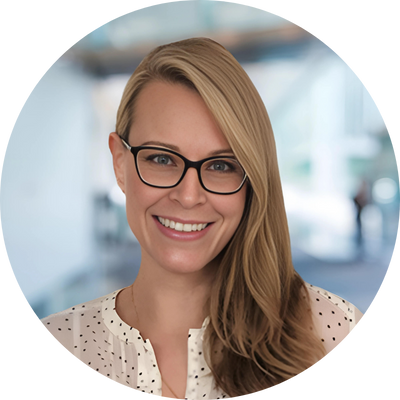
Jane Stanke
Recruitment Consultant Permanent GP (UK Based)
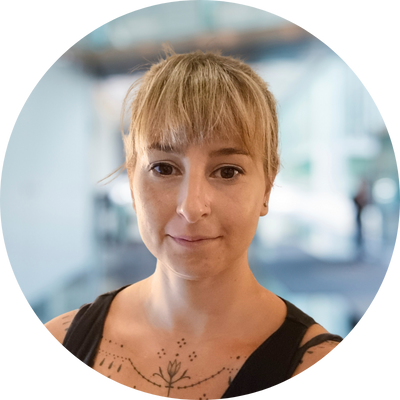
Charlie Hellmundt
Recruitment Consultant Locum General Practice
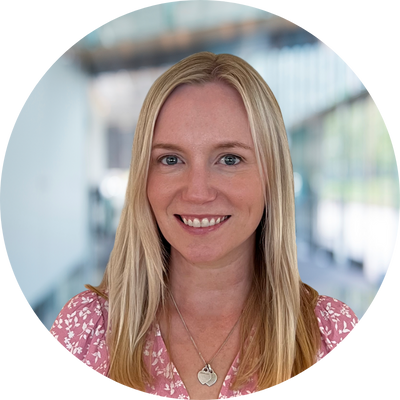
Amy Beddall
Associate Recruiter Locum General Practice
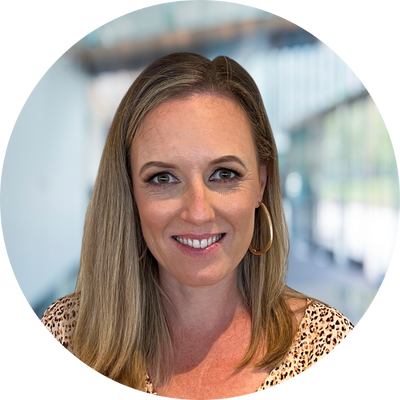
Anna Mullins
Recruitment Consultant Locum GP & AMS

Max Drakeley
GP Locum & Telehealth Recruitment

Stephanie Nash
Recruitment Consultant GP Locum
Meet our Medicine team
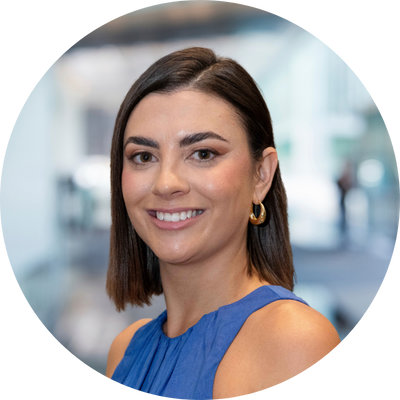
Tahnee Love
Recruitment Consultant Locum Surgery & Medicine

Rebecca Crocket
Recruitment Consultant Locum Surgery & Medicine
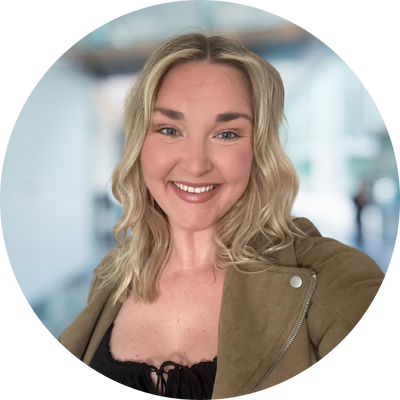
Kelly Deakin
Recruitment Consultant Locum Physicians

Claudine Zaarour
Recruitment Consultant Locum Physicians

Ashlea Harvey
Recruitment Consultant – Permanent Emergency Medicine, Anaesthetics, ICU, General Medicine, O&G, Fertility and Paediatrics
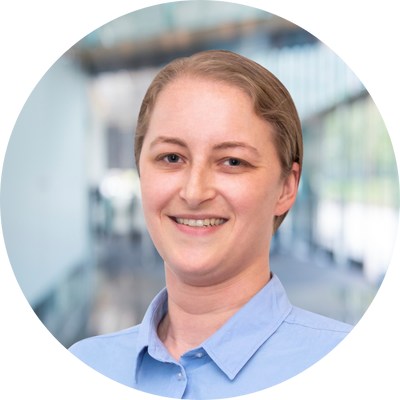
Chloe Frost
Recruitment Consultant - Permanent Psychiatry, Surgery, Radiology, Radiation Oncology, Nuclear Medicine and Cardiology
.png)
Claire Waters
Senior Recruitment Consultant – Permanent (Non-Specialists)
Meet our Obstetrics & Gynaecology team

Christina Gregory
Recruitment Consultant Locum O&G and Paediatrics
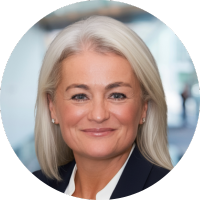
Amber Derby-Davies
Recruitment Consultant - Locum O&G

Ashlea Harvey
Recruitment Consultant – Permanent Emergency Medicine, Anaesthetics, ICU, General Medicine, O&G, Fertility and Paediatrics
.png)
Claire Waters
Senior Recruitment Consultant – Permanent (Non-Specialists)
Meet our Paediatrics team

Christina Gregory
Recruitment Consultant Locum O&G and Paediatrics
.png)
Eamon McCurry
Recruitment Consultant Locum Paediatrics

Ashlea Harvey
Recruitment Consultant – Permanent Emergency Medicine, Anaesthetics, ICU, General Medicine, O&G, Fertility and Paediatrics
.png)
Claire Waters
Senior Recruitment Consultant – Permanent (Non-Specialists)
Meet our Psychiatry team
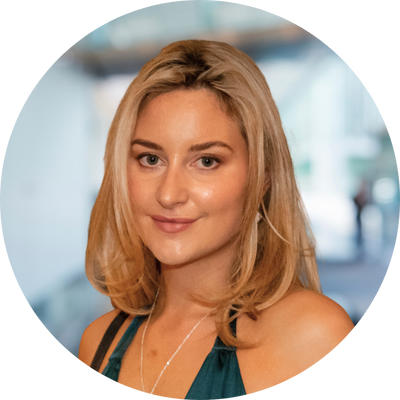
Yasmin Lockey
Recruitment Consultant - Locum Psychiatry
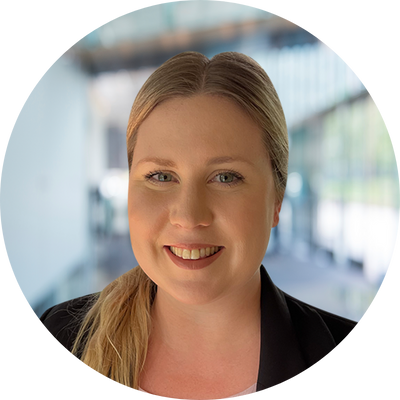
Courtney Lewis
Recruitment Consultant - Locum Psychiatry
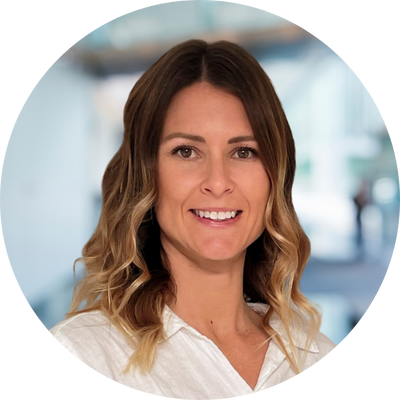
Robyn Pascoe
Recruitment Consultant - Locum Psychiatry (Non-Specialist)

Chloe Frost
Recruitment Consultant - Permanent Psychiatry, Surgery, Radiology, Radiation Oncology, Nuclear Medicine and Cardiology
.png)
Claire Waters
Senior Recruitment Consultant – Permanent (Non-Specialists)
Meet our Surgery team

Tahnee Love
Recruitment Consultant Locum Surgery & Medicine

Rebecca Crocket
Recruitment Consultant Locum Surgery & Medicine

Nicole Langan
Recruitment Consultant – Locum Surgery

Chloe Frost
Recruitment Consultant - Permanent Psychiatry, Surgery, Radiology, Radiation Oncology, Nuclear Medicine and Cardiology
.png)
Claire Waters
Senior Recruitment Consultant – Permanent (Non-Specialists)
Meet our Healthcare Executive Search team
Meet our Recruitment team

Paul Darby
General Manager, Hospital Services Locum

Christina Gregory
Recruitment Consultant Locum O&G and Paediatrics

Fiona Jackson
Recruitment Consultant Locum ED, ICU & Anaesthetics

Mikaila Brooks
Recruitment Consultant Locum ED, ICU & Anaesthetics

Jade Camilleri
Recruitment Consultant Locum Anaesthetics & ICU

Tabather Cain
Recruitment Consultant Locum Anaesthetics & ICU

Tahnee Love
Recruitment Consultant Locum Surgery & Medicine

Skye Rogers
Recruitment Consultant Locum ED, ICU & Anaesthetics

Rebecca Crocket
Recruitment Consultant Locum Surgery & Medicine

Jane Stanke
Recruitment Consultant Permanent GP (UK Based)

Charlie Hellmundt
Recruitment Consultant Locum General Practice

Amy Beddall
Associate Recruiter Locum General Practice

Anna Mullins
Recruitment Consultant Locum GP & AMS
.png)
Eamon McCurry
Recruitment Consultant Locum Paediatrics

Kelly Deakin
Recruitment Consultant Locum Physicians

Claudine Zaarour
Recruitment Consultant Locum Physicians

Amber Derby-Davies
Recruitment Consultant - Locum O&G

Yasmin Lockey
Recruitment Consultant - Locum Psychiatry

Courtney Lewis
Recruitment Consultant - Locum Psychiatry

Robyn Pascoe
Recruitment Consultant - Locum Psychiatry (Non-Specialist)

Nicole Langan
Recruitment Consultant – Locum Surgery

Ashlea Harvey
Recruitment Consultant – Permanent Emergency Medicine, Anaesthetics, ICU, General Medicine, O&G, Fertility and Paediatrics

Chloe Frost
Recruitment Consultant - Permanent Psychiatry, Surgery, Radiology, Radiation Oncology, Nuclear Medicine and Cardiology
.png)
Claire Waters
Senior Recruitment Consultant – Permanent (Non-Specialists)

Craig Picard
Locum Recruitment Consultant in Radiology

Max Drakeley
GP Locum & Telehealth Recruitment
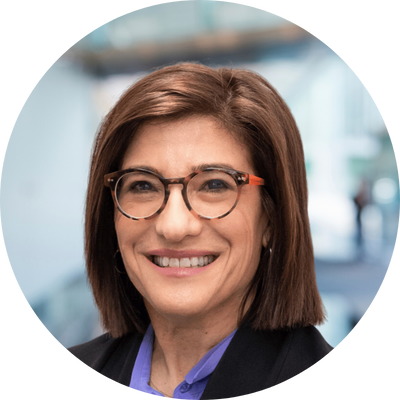
Pam Lubrainschik
Managing Consultant - Executive Search

Kylie Brown
Associate Consultant - Executive Search
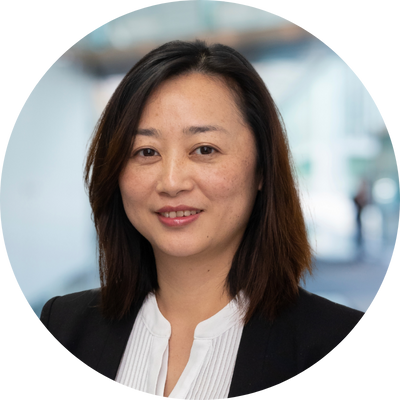
Natalie Xu
Senior Consultant - Executive Search
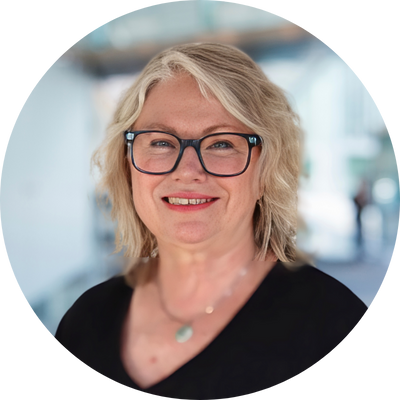
Kim Gillespie
Senior Consultant - Executive Search

Stephanie Nash
Recruitment Consultant GP Locum
Meet our Junior Locum Doctors team

Christina Gregory
Recruitment Consultant Locum O&G and Paediatrics

Fiona Jackson
Recruitment Consultant Locum ED, ICU & Anaesthetics

Mikaila Brooks
Recruitment Consultant Locum ED, ICU & Anaesthetics

Jade Camilleri
Recruitment Consultant Locum Anaesthetics & ICU

Tahnee Love
Recruitment Consultant Locum Surgery & Medicine

Skye Rogers
Recruitment Consultant Locum ED, ICU & Anaesthetics

Rebecca Crocket
Recruitment Consultant Locum Surgery & Medicine

Robyn Pascoe
Recruitment Consultant - Locum Psychiatry (Non-Specialist)
.png)
Claire Ponsford
Co-Owner & Director, Wavelength Group
With a strong background in medical recruitment, Claire established Wavelength International in 1999 with Dr John Bethell to address a growing shortage of junior and middle-grade doctors in the Australian public hospital system.
Almost 25 years later, Claire is proud to head an ethical medical recruitment and migration services company, founded on integrity, and driven to serve the needs of the healthcare industry.
.png)
Dr John Bethell
Co-Owner & Director, Wavelength Group
Dr John Bethell graduated in medicine from the University of Aberdeen in 1991 and began his career as a doctor before moving into recruitment. He joined Morgan & Banks in 1996, leading medical and pharmaceutical executive searches, and co-founded Wavelength International with Claire Ponsford in 1999.
After relocating to Europe in 2012, John remained a non-executive director of Wavelength while working with innovative life sciences start-ups, co-founding Luka Global Group and recruiting over 20 CEOs and senior leaders across 15 countries.
In 2025, John returned to Australia to co-direct the Wavelength Group alongside Claire Ponsford, where he heads the permanent recruitment division and Ccentric executive search.

Paul Darby
General Manager, Hospital Services Locum
Paul joined Wavelength in 2023 as the General Manager of Hospital Services, Locum. He has worked in the recruitment industry in Australia and the UK for 18 years, and moved into the Healthcare sector in 2018.
Throughout his career, he has trained and coached a large number of successful recruitment consultants and has taken responsibility for new business development and client account management. He is particularly passionate about the locum doctor sector and the impact his division at Wavelength has on regional & remote communities across Australia.
.png)
Jon Wallace
National Client Relationship Manager, Wavelength Group

Craig Picard
Hospital Specialist Locum Manager
With a personalised, relationship-focused approach, Craig has built lasting partnerships with doctors and healthcare providers across a wide range of medical specialties. His deep understanding of the healthcare sector allows him to match Radiologists with roles that suit their lifestyle, locum career goals, and preferred locations — from major cities to regional and rural communities.
Craig is passionate about improving healthcare access and recognises the vital difference a skilled locum Radiologist can make to hospitals, clinics, and communities in need.
If you’re a Consultant Radiologist interested in locum or teleradiology work in Australia or New Zealand, connect with Craig below.

Max Drakeley
GP Locum Team Manager
As Wavelength's GP Team Manager, Max delivers a highly tailored and consultative service to doctors and partner organisations, ensuring “right fit” recruitment decisions for all.
Since 2019, he's developed expertise in locum and permanent GP recruitment across the Australian hospital and healthcare sector.
He leads an experienced team of consultants and shares their passion for supporting doctors to truly enjoy their careers and feel proud of the meaningful work they do.

Skye Rogers
Locum Manager - Critical Care
Skye joined Wavelength in 2025 as the Team Manager of JAMED, bringing over 16 years of experience in medical recruitment, including 12 years dedicated to working with locum doctors.
Specialising in the placement of Emergency doctors in locum roles across Australia, she is passionate about supporting healthcare delivery by connecting talented doctors with hospitals in need.
In her role, she leads a dedicated team of consultants, fostering a collaborative and high-performing environment focused on delivering exceptional service to both doctors and healthcare clients.

Elinor Faulkner
Team Leader, Regulatory & Migration Services
With over a decade of experience, Elinor is an expert on all the registration and Medicare requirements that an overseas-trained specialist needs to complete during the migration process.
She is our Regulatory and Migration Team Leader, and ensures the team provide a smooth transition to Australia and New Zealand for all our doctors.

Christina Gregory
Recruitment Consultant Locum O&G and Paediatrics
Christina joined Wavelength in January 2023 as an Associate Recruiter working with Junior Locum Doctors. She now manages the obstetrics & gynaecology and paediatrics desks, placing Junior Doctors in locum roles around Australia.
Christina prides herself on the relationships she makes and nurtures with her clients and candidates, and finds satisfaction in creating seamless locum experiences for her doctors.
"Christina has just been amazing in organising my next Locum shift to sorting every little detail in relation to that shift. Regular updates on available shifts and going extra length to find a suitable place for me to work. Exceptional!"

Fiona Jackson
Recruitment Consultant Locum ED, ICU & Anaesthetics
Fiona has been working in medical recruitment since 2019 and now helps Emergency Medicine CMOs and Registrars find rewarding locum jobs.
Her doctors appreciate her efficient and transparent approach. And the exceptional support she provides throughout their placements means they can focus on what they do best.

Mikaila Brooks
Recruitment Consultant Locum ED, ICU & Anaesthetics
Mikaila's career in healthcare started in 2013 and she gained extensive knowledge in rostering and locum policies and procedures in her role coordinating locums with NSW Health.
She now recruits psychiatry locums and enjoys finding roles that support doctors interests and goals.
She's dedicated to providing quality experiences and making a difference in healthcare departments across Australia.

Jade Camilleri
Recruitment Consultant Locum Anaesthetics & ICU
Jade joined Wavelength in 2022 and has since cultivated strong, lasting relationships with doctors and clients nationwide.
She takes the time to understand each doctor’s motivations, lifestyle, and interests, so she can match them with locum roles that align with their personal and professional goals.
Jade works closely with hospitals to ensure they have access to medical professionals who can best serve their communities.
"Jade gave me excellent support when looking for positions and ensured that I was happy with the placement, requesting and acting on any feedback given." Dr John Peniston-Bird, Anaesthetics Registrar

Tabather Cain
Recruitment Consultant Locum Anaesthetics & ICU
Tabi has been working in medical recruitment since 2018 and has in-depth knowledge of the Anaesthetics and ICU locum market in Australia.
She goes above and beyond for her doctors, making their experience as easy as possible by reducing the burden of paperwork and logistics.
Tabi enjoys helping doctors find the best locum roles and, in turn, helping hospitals find the best doctors.

Tahnee Love
Recruitment Consultant Locum Surgery & Medicine
Tahnee joined Wavelength in 2022 and places junior doctors in surgery and general medicine locum roles across Australia.
She enjoys connecting with doctors at the early stages of their career and finding roles that help them achieve their long-term goals.
Her tailored approach focuses on understanding the unique needs of each doctor and healthcare employer she works with.
"Tahnee has been great to work with. She's a great communicator and managed to find me consistent work during a particularly competitive period." Dr James Sellars, General Surgery Registrar

Skye Rogers
Recruitment Consultant Locum ED, ICU & Anaesthetics
Skye joined Wavelength in 2025 as the Team Manager of JAMED, bringing over 16 years of experience in medical recruitment, including 12 years dedicated to working with locum doctors.
Specialising in the placement of Emergency doctors in locum roles across Australia, she is passionate about supporting healthcare delivery by connecting talented doctors with hospitals in need.
In her role, she leads a dedicated team of consultants, fostering a collaborative and high-performing environment focused on delivering exceptional service to both doctors and healthcare clients.

Rebecca Crocket
Recruitment Consultant Locum Surgery & Medicine
Bec joined Wavelength in 2025, bringing over 15 years of experience in medical recruitment. During her time as a Locum Recruitment Officer with NSW Health, she developed extensive knowledge of the broader locum landscape and its unique demands.
Her goal is to connect talented doctors with the right opportunities, supporting locums in securing RMO and Registrar roles in General Medicine and Surgery.

Jane Stanke
Recruitment Consultant Permanent GP (UK Based)
Jane has extensive international recruitment experience, with over 14 years in Wavelength's GP team.
Her dedication is second to none. She finds her job truly rewarding and doctors return to her again and again throughout their career.
She has a strong track record in developing long-term, successful partnerships and takes pride in representing the best jobs in the market.
Based in Cheltenham, UK, Jane provides an efficient and personalised service for doctors living in the UK, Ireland, Europe and Canada. Australian and NZ-based doctors also have the option of arranging calls in the evenings, after finishing their consults.
"The whole team were really helpful with the move. Jane has kept in touch with me since I moved to Australia to check up on me and how I'm getting on. They made the process as smooth as possible which was great." Dr Ben Pilkington, GP

Charlie Hellmundt
Recruitment Consultant Locum General Practice
Charlie has been a dedicated part of the Wavelength team since 2010 and over that time has developed extensive knowledge of the locum GP market.
With her personalised and efficient approach, she seamlessly matches doctors with rewarding locum roles that help them achieve their career goals.
Charlie partners with GP clinics, Indigenous Health, correctional health services, occupational health clinics and corporate organisations throughout Australia.

Amy Beddall
Associate Recruiter Locum General Practice
Amy joined Wavelength's GP team in 2012 and now specialises in the crucial area of AMS/Indigenous Health.
She has in-depth knowledge of the market and an extensive network, meaning she can find the right locum doctor to support communities in need.
She's driven to deliver exceptional service and takes pride in supporting doctors with their career goals.

Anna Mullins
Recruitment Consultant Locum GP & AMS
Anna first started at Wavelength in 2006 and since 2012 has recruited GPs for AMS/Indigenous Health.
She's known for her extensive experience and market knowledge as well as her friendly and personal approach.
Building connections comes naturally to her and she goes above and beyond to support the doctors and clients she works with.

Helen Spanos
Quality, Risk & Compliance Manager
Helen joined Wavelength in 2012, working in recruitment before quickly finding her passion for quality and risk. After eight years, Helen sought other opportunities, but returned to Wavelength in 2025 into her prior role as Quality & Risk Manager. Through a culture of collaboration, Helen is dedicated to ensuring regulatory compliance and maintaining high standards of quality across all recruitment operations.
.png)
Eamon McCurry
Recruitment Consultant Locum Paediatrics
Eamon joined Wavelength in 2010 and has since gained in-depth knowledge of the locum market across various specialties.
He's committed to building long-lasting relationships and goes the extra mile to make a difference in the lives of those he works with.
Eamon is driven to help locum doctors find the right role at a hospital that fits their lifestyle and interests, while also helping healthcare employers to find the perfect doctor for their team.

Kelly Deakin
Recruitment Consultant Locum Physicians
Kelly transitioned into healthcare recruitment in 2017 after several years working directly in the sector.
Her background gave her a deep understanding of the challenges faced on the front lines and the critical role that staffing plays in delivering quality care.
Kelly is passionate about connecting with doctors, hearing their stories, and helping them find roles that align with their goals and lifestyle.
She specialises in placing locum Physicians in QLD, WA and NT.

Claudine Zaarour
Recruitment Consultant Locum Physicians
Claudine joined Wavelength in 2005, making her one of Wavelength's most experienced recruiters.
With her extensive knowledge of the locum Physician market and a reputation for providing exceptional service, she's one of Wavelength's most highly regarded consultants.
She supports a wide network of hospitals in NSW, VIC, TAS, SA and ACT and works closely with doctors to find the perfect locum roles in general medicine.

Melissa Welsh
Recruitment Operations Manager
Melissa joined Wavelength 15 years ago, and has over 21 years of experience in recruitment. She brings a wealth of knowledge and versatility to her role as Operations Manager. Melissa has worked across a range of desks—including Surgery, Medicine, Psychiatry, DMS, Telehealth, and Divergent Careers, and held diverse roles from RCO to Project Manager and Recruiter, she offers a deep understanding of the business.
Passionate about teamwork and collaboration, Melissa is committed to achieving the best outcomes for both doctors and clients. She also finds great fulfilment in training and developing staff, nurturing strong relationships across all areas of the business.

Amber Derby-Davies
Recruitment Consultant - Locum O&G
Since 2004, Amber has developed an unrivalled level of expertise in O&G locum recruitment.
As one of our most senior recruiters, Amber has a reputation for excellence and going the extra mile for her doctors and healthcare employers.
She is passionate about what she does and works tirelessly to deliver an ethical, consultative and seamless recruitment service.
"Amber and her team are the best locum specialists I have dealt with anywhere." Dr James, Obstetrics and Gynaecology Consultant

Yasmin Lockey
Recruitment Consultant - Locum Psychiatry
Since 2020, Yasmin has been helping Psychiatrists find rewarding locum roles across Australia.
With an unrivalled network of hospitals and in-depth knowledge of the market, doctors rely on Yasmin for support throughout their career.
She is passionate about finding the right fit for her doctors, matching their interests and goals with the best locum opportunities.

Carole Paterson
Partnership & Contracts Manager
Carole joined Wavelength in 2008 as a recruiter. Now, she focuses on internal business projects including partnerships, tenders and operational initiatives.
Carole has extensive experience recruiting across the Locum Hospital and GP divisions, which has developed her knowledge across a wide variety of specialities and has enabled her to visit rural and remote locations throughout Australia.

Courtney Lewis
Recruitment Consultant - Locum Psychiatry
Courtney has worked in medical recruitment since 2013, placing locum consultants throughout Australia.
She is dedicated to supporting Psychiatrists through every stage of their career, finding the best locum jobs so they can achieve their goals.
Courtney understands the different areas of psychiatry and how to match skills with the right mental health service.

Robyn Pascoe
Recruitment Consultant - Locum Psychiatry (Non-Specialist)
Robyn has been working with non-specialist doctors since 2014 and joined Wavelength in 2021 to focus on psychiatry locums.
She has extensive knowledge of locum placements and creates a seamless process for the doctors and clients she works with.
Robyn enjoys building meaningful, long-term relationships and takes the time to understand each doctors' unique needs and goals.

Nicole Langan
Recruitment Consultant – Locum Surgery
Nicole is one of Wavelength’s most senior recruiters, starting her medical recruitment career in 2009.
Over that time, she's built up a wealth of knowledge about the industry and is an expert on the locum surgery market.
Her doctors benefit from her extensive network of hospitals and she goes above and beyond to find them the right roles.

Ashlea Harvey
Recruitment Consultant – Permanent Emergency Medicine, Anaesthetics, ICU, General Medicine, O&G, Fertility and Paediatrics
Ashlea's medical recruitment career began in 2019 and she joined the Wavelength team in 2021.
She takes pride in listening to her doctors' needs and she uses her great relationships with hospitals Australia-wide to find them the most rewarding permanent roles.
With a genuine passion for making a difference, Ashlea provides a tailored, flexible and diligent approach to every doctor and healthcare employer she partners with.

Chloe Frost
Recruitment Consultant - Permanent Psychiatry, Surgery, Radiology, Radiation Oncology, Nuclear Medicine and Cardiology
Chloe has been working in recruitment since 2016 and now helps doctors find fulfilling permanent roles across Australia and New Zealand.
She has a wealth of experience in credentialing and compliance - a huge plus for her doctors, especially those making the move from overseas.
With a focus on building strong relationships, Chloe seamlessly matches talented medical professionals with the healthcare employers that need them most.
.png)
Claire Waters
Senior Recruitment Consultant – Permanent (Non-Specialists)
Claire has been working in medical recruitment since 2020 and specialises in helping overseas junior and middle-grade doctors find rewarding roles across Australia.
Known for her friendly and passionate approach, Claire has built strong relationships with healthcare clients nationwide and provides doctors with expert insights into the Australian job market.
Originally from Ireland, Claire understands firsthand what it’s like to relocate abroad and offers exceptional support to doctors navigating their move to Australia.
.png)
Leiara Ferrett
Registered Migration Agent (MARN: 1174178)
Leiara is an accomplished Immigration Consultant and Registered Migration Agent with over 15 years experience in Australia and abroad.
She's developed a deep understanding of the common challenges and complexities faced by doctors moving to Australia and expertly guides them through their visa journey.
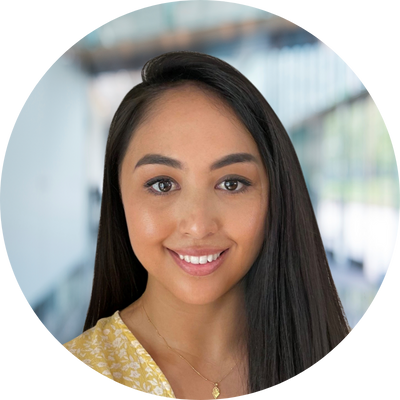
Ebony Kouka
Regulatory Consultant
Ebony is Wavelength's regulatory expert for General Practitioners making the move to Australia. She guides and supports GPs through the complex AHPRA, RACGP and Medicare requirements.
Before joining Wavelength in 2019, she previously worked as an Immigration Officer in New Zealand. She's skilled at interpreting the constantly evolving regulatory requirements for overseas trained doctors.
Her approach is built on honesty, empathy, advocacy and genuine care.
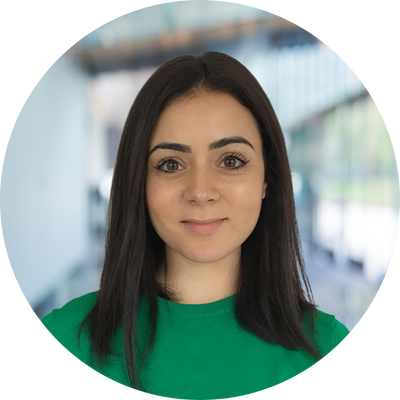
Alexandra Graham
Registered Migration Agent (MARN: 1795080)
Alex has been working in Wavelength's Regulatory and Migration team since 2011.
Initially a Regulatory Consultant, she is now a Registered Migration Agent providing critical support to overseas trained General Practitioners moving to Australia.
She helps doctors navigate complex visa requirements, ensuring they can start their new role on time.
.png)
Lisa Greaves
Regulatory Coordinator
Lisa has held a variety of roles during her time at Wavelength and after moving overseas in 2017, she rejoined us in 2023 as a Regulatory Coordinator.
Originally from Ireland, she uses her own experience of the migration journey to provide exceptional support to international medical graduates making the move to Australia.

Craig Picard
Locum Recruitment Consultant in Radiology
With a personalised, relationship-focused approach, Craig has built lasting partnerships with doctors and healthcare providers across a wide range of medical specialties. His deep understanding of the healthcare sector allows him to match Radiologists with roles that suit their lifestyle, locum career goals, and preferred locations — from major cities to regional and rural communities.
Craig is passionate about improving healthcare access and recognises the vital difference a skilled locum Radiologist can make to hospitals, clinics, and communities in need.
If you’re a Consultant Radiologist interested in locum or teleradiology work in Australia or New Zealand, connect with Craig below.

Max Drakeley
GP Locum & Telehealth Recruitment
As Wavelength's GP Team Manager, Max delivers a highly tailored and consultative service to doctors and partner organisations, ensuring “right fit” recruitment decisions for all.
Since 2019, he's developed expertise in locum and permanent GP recruitment across the Australian hospital and healthcare sector.
He leads an experienced team of consultants and shares their passion for supporting doctors to truly enjoy their careers and feel proud of the meaningful work they do.

Pam Lubrainschik
Managing Consultant - Executive Search
Pam joined Ccentric, now part of the Wavelength Group, in 2015, bringing a wealth of experience from running her firm, Regional Recruiters Australia.
She leads Ccentric's University and academic healthcare practice and works closely with not-for-profits and various health services across Australia.
Pam's approach is warm and professional and she's driven by a strong passion for making a positive impact on both her clients and candidates.

Kylie Brown
Associate Consultant - Executive Search
Kylie joined the Wavelength Group in 2019 and brings over 10 years of Human Resource Management experience, working as a HR Business Partner at Qantas Airlines.
Before this, Kylie held several leadership roles within Qantas and Westpac Bank. She's provided support in a diverse range of human resources activities, operational management and change management.
Kylie is passionate about people, building collaborative relationships and delivering an exceptional recruitment experience to both clients and candidates.

Natalie Xu
Senior Consultant - Executive Search
Natalie joined the Wavelength Group in 2021, having moved from China where she had over 10 years of experience in executive search.
Her experience spans life sciences, healthcare, consumer and business. She's recruited general managers, business unit leaders and senior functional roles in a range of multinational companies.
Natalie is recognised as a trusted recruitment partner by both her clients and candidates.

Kim Gillespie
Senior Consultant - Executive Search
Kim joined the Wavelength Group in 2022 and has extensive experience in executive search, specialising in C-suite and senior leadership roles.
She has worked with a diverse range of organisations, from ASX100-listed companies and Go8 universities to not-for-profits.
She has a deep understanding of leadership talent and industry dynamics and is committed to connecting exceptional leaders with organisations that drive meaningful impact.

Stephanie Nash
Recruitment Consultant GP Locum
As a Recruitment Consultant in Wavelength International’s GP Division, Stephanie focuses on helping doctors build careers they genuinely enjoy, while supporting healthcare organisations to deliver consistent, high-quality care to the communities they serve. Stephanie has worked across both locum and permanent recruitment for several years, with a dedicated focus on the GP market since 2021.
Taking a highly consultative and tailored approach, Stephanie acts as an honest, well-informed broker to ensure the right fit for both doctors and partner organisations. The goal is simple: better outcomes for clinicians, practices, and patients alike.
Outside of work, Stephanie enjoys travelling, hiking, live music and spending time with friends. Originally from the UK, she now calls Sydney home and makes the most of every opportunity to be outdoors.
- Let’s connect
Frequently Asked Questions
Can I work anywhere in Australia?
Registration with the Australian Health Practitioner Regulation Agency (AHPRA) allows doctors and other health professionals to work anywhere in Australia, subject to any restrictions or conditions as listed on your registration.
All doctors working in Australia must have registration with AHPRA, which may be Limited, Provisional, General or Specialist. Wavelength can assist you in determining the correct registration type.
New Zealand-trained General Practitioners with their Fellowship of the Royal New Zealand College of General Practitioners (FRNZCGP) are highly regarded by the Royal Australian College of General Practitioners (RACGP).
First time registration with AHPRA generally takes 6-8 weeks to approve and requires you to meet several Registration Standards, including English proficiency, criminal history checks and recency of practice. Wavelength will work with you throughout this process.
What will my working conditions be like?
Our recruitment consultants always work on your behalf to negotiate the best possible remuneration, travel and accommodation package.
No matter your specialty, sub-specialty or seniority we keep you up-to-date every step of the way regarding working conditions and the level of support you will have, so you can be fully informed before accepting a position.
We are also happy to arrange for you to speak directly to a member of staff at the location where you are considering a role, to ask further questions should you wish.
Do I need to provide proof of immunisation?
We highly recommend you provide us with proof of your immunisation status for our records to ensure you can easily and quickly secure and start locum positions.
There are various ways in which you can provide proof of vaccination such as:
- A copy of your vaccination record,
- Results of a blood test showing the required level of immunity,
- A letter from a GP or occupational health department with details of immunisation status.
Some placements specify particular immunisation requirements. Your dedicated recruitment consultant will be able to offer further detail regarding these.
Your recruitment consultant will also be able to provide you with the most up-to-date information about the requirements for COVID-19 vaccinations.
What is a DWS area?
A District of Workforce Shortage (DWS) area is defined as a geographical area where the local population has less access to Medicare-subsidised medical services when compared to the national average.
Australian Bureau of Statistics (ABS) data and Medicare billing statistics are used to determine the DWS areas.
For GPs, the geographical areas for DWS classifications for general practice are referred to as SA2 boundaries. For specialities other than general practice, they are referred to as SA3 boundaries.
I was nominated as a Resident Medical Officer; can I apply for a permanent visa?
The Australian Government announced that measures will be introduced from 1 July 2022 to improve access to permanent residence for certain temporary work visa holders. This includes individuals who were in Australia for at least 12 months between 1 February 2020 and 14 December 2021 holding a subclass 482 visa in the short-term nominated occupation.
You must have held the 482 visa as a primary visa holder, worked in the nominating occupation for at least 3 years and the nominating hospital or practice is willing to support an application for permanent residency via the Employer Nomination Scheme. Our registered migration agents will be able to offer further assistance regarding eligibility requirements based on your individual circumstances.
What is AHPRA’s English Language policy and how do I meet it?
There are 4 ways in which you can meet AHPRA’s English Language policy:
- Primary Language Pathway:
Choose this pathway if:
- Your primary language is English, and,
- All your primary and secondary education was taught and assessed solely in English in a recognised country, and,
- Your tertiary qualifications in the relevant professional discipline were taught and assessed solely in English.
- Combined Secondary and Tertiary Education Pathway:
Choose this pathway if:
- You have at least two years of secondary education, taught and assessed solely in English in a recognised country, and,
- Your tertiary qualifications in a relevant professional discipline were taught and assessed solely in English in a recognised country.
- Extended Education Pathway:
Choose this pathway if:
- You have completed at least six years’ full-time equivalent (FTE) continuous education taught and assessed solely in English, in any of the recognised countries, which includes tertiary qualifications in the relevant professional discipline.
- Test Pathway:
Choose this pathway if:
- You achieve the required minimum scores in one of the approved English language tests.
Can I work anywhere in Australia?
Registration with the Australian Health Practitioner Regulation Agency (AHPRA) allows doctors and other health professionals to work anywhere in Australia, subject to any restrictions or conditions as listed on your registration.
All doctors working in Australia must have registration with AHPRA, which may be Limited, Provisional, General or Specialist. Wavelength can assist you in determining the correct registration type.
New Zealand-trained General Practitioners with their Fellowship of the Royal New Zealand College of General Practitioners (FRNZCGP) are highly regarded by the Royal Australian College of General Practitioners (RACGP).
First time registration with AHPRA generally takes 6-8 weeks to approve and requires you to meet several Registration Standards, including English proficiency, criminal history checks and recency of practice. Wavelength will work with you throughout this process.
What will my working conditions be like?
Our recruitment consultants always work on your behalf to negotiate the best possible remuneration, travel and accommodation package.
No matter your specialty, sub-specialty or seniority we keep you up-to-date every step of the way regarding working conditions and the level of support you will have, so you can be fully informed before accepting a position.
We are also happy to arrange for you to speak directly to a member of staff at the location where you are considering a role, to ask further questions should you wish.
Do I need to provide proof of immunisation?
We highly recommend you provide us with proof of your immunisation status for our records to ensure you can easily and quickly secure and start locum positions.
There are various ways in which you can provide proof of vaccination such as:
- A copy of your vaccination record,
- Results of a blood test showing the required level of immunity,
- A letter from a GP or occupational health department with details of immunisation status.
Some placements specify particular immunisation requirements. Your dedicated recruitment consultant will be able to offer further detail regarding these.
Your recruitment consultant will also be able to provide you with the most up-to-date information about the requirements for COVID-19 vaccinations.
What is a DWS area?
A District of Workforce Shortage (DWS) area is defined as a geographical area where the local population has less access to Medicare-subsidised medical services when compared to the national average.
Australian Bureau of Statistics (ABS) data and Medicare billing statistics are used to determine the DWS areas.
For GPs, the geographical areas for DWS classifications for general practice are referred to as SA2 boundaries. For specialities other than general practice, they are referred to as SA3 boundaries.
I was nominated as a Resident Medical Officer; can I apply for a permanent visa?
The Australian Government announced that measures will be introduced from 1 July 2022 to improve access to permanent residence for certain temporary work visa holders. This includes individuals who were in Australia for at least 12 months between 1 February 2020 and 14 December 2021 holding a subclass 482 visa in the short-term nominated occupation.
You must have held the 482 visa as a primary visa holder, worked in the nominating occupation for at least 3 years and the nominating hospital or practice is willing to support an application for permanent residency via the Employer Nomination Scheme. Our registered migration agents will be able to offer further assistance regarding eligibility requirements based on your individual circumstances.
What is AHPRA’s English Language policy and how do I meet it?
There are 4 ways in which you can meet AHPRA’s English Language policy:
- Primary Language Pathway:
Choose this pathway if:
- Your primary language is English, and,
- All your primary and secondary education was taught and assessed solely in English in a recognised country, and,
- Your tertiary qualifications in the relevant professional discipline were taught and assessed solely in English.
- Combined Secondary and Tertiary Education Pathway:
Choose this pathway if:
- You have at least two years of secondary education, taught and assessed solely in English in a recognised country, and,
- Your tertiary qualifications in a relevant professional discipline were taught and assessed solely in English in a recognised country.
- Extended Education Pathway:
Choose this pathway if:
- You have completed at least six years’ full-time equivalent (FTE) continuous education taught and assessed solely in English, in any of the recognised countries, which includes tertiary qualifications in the relevant professional discipline.
- Test Pathway:
Choose this pathway if:
- You achieve the required minimum scores in one of the approved English language tests.
Can I work anywhere in Australia?
Registration with the Australian Health Practitioner Regulation Agency (AHPRA) allows doctors and other health professionals to work anywhere in Australia, subject to any restrictions or conditions as listed on your registration.
All doctors working in Australia must have registration with AHPRA, which may be Limited, Provisional, General or Specialist. Wavelength can assist you in determining the correct registration type.
New Zealand-trained General Practitioners with their Fellowship of the Royal New Zealand College of General Practitioners (FRNZCGP) are highly regarded by the Royal Australian College of General Practitioners (RACGP).
First time registration with AHPRA generally takes 6-8 weeks to approve and requires you to meet several Registration Standards, including English proficiency, criminal history checks and recency of practice. Wavelength will work with you throughout this process.
What will my working conditions be like?
Our recruitment consultants always work on your behalf to negotiate the best possible remuneration, travel and accommodation package.
No matter your specialty, sub-specialty or seniority we keep you up-to-date every step of the way regarding working conditions and the level of support you will have, so you can be fully informed before accepting a position.
We are also happy to arrange for you to speak directly to a member of staff at the location where you are considering a role, to ask further questions should you wish.
Do I need to provide proof of immunisation?
We highly recommend you provide us with proof of your immunisation status for our records to ensure you can easily and quickly secure and start locum positions.
There are various ways in which you can provide proof of vaccination such as:
- A copy of your vaccination record,
- Results of a blood test showing the required level of immunity,
- A letter from a GP or occupational health department with details of immunisation status.
Some placements specify particular immunisation requirements. Your dedicated recruitment consultant will be able to offer further detail regarding these.
Your recruitment consultant will also be able to provide you with the most up-to-date information about the requirements for COVID-19 vaccinations.
What is a DWS area?
A District of Workforce Shortage (DWS) area is defined as a geographical area where the local population has less access to Medicare-subsidised medical services when compared to the national average.
Australian Bureau of Statistics (ABS) data and Medicare billing statistics are used to determine the DWS areas.
For GPs, the geographical areas for DWS classifications for general practice are referred to as SA2 boundaries. For specialities other than general practice, they are referred to as SA3 boundaries.
I was nominated as a Resident Medical Officer; can I apply for a permanent visa?
The Australian Government announced that measures will be introduced from 1 July 2022 to improve access to permanent residence for certain temporary work visa holders. This includes individuals who were in Australia for at least 12 months between 1 February 2020 and 14 December 2021 holding a subclass 482 visa in the short-term nominated occupation.
You must have held the 482 visa as a primary visa holder, worked in the nominating occupation for at least 3 years and the nominating hospital or practice is willing to support an application for permanent residency via the Employer Nomination Scheme. Our registered migration agents will be able to offer further assistance regarding eligibility requirements based on your individual circumstances.
What is AHPRA’s English Language policy and how do I meet it?
There are 4 ways in which you can meet AHPRA’s English Language policy:
- Primary Language Pathway:
Choose this pathway if:
- Your primary language is English, and,
- All your primary and secondary education was taught and assessed solely in English in a recognised country, and,
- Your tertiary qualifications in the relevant professional discipline were taught and assessed solely in English.
- Combined Secondary and Tertiary Education Pathway:
Choose this pathway if:
- You have at least two years of secondary education, taught and assessed solely in English in a recognised country, and,
- Your tertiary qualifications in a relevant professional discipline were taught and assessed solely in English in a recognised country.
- Extended Education Pathway:
Choose this pathway if:
- You have completed at least six years’ full-time equivalent (FTE) continuous education taught and assessed solely in English, in any of the recognised countries, which includes tertiary qualifications in the relevant professional discipline.
- Test Pathway:
Choose this pathway if:
- You achieve the required minimum scores in one of the approved English language tests.
